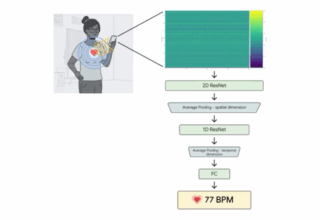
After the earthquake hit Nepal, Prem Raja Mahat spent a sleepless night at his Baltimore home, trying again and again to reach his son, who was visiting friends and family back in Mahat’s home country.
Power outages and communications problems have made life agonizing for the nearly 6 million Nepalese who live abroad—or about 22 percent of the population. They try desperately to reach loved ones through cellphones and global messaging apps, only to be met with silence or fleeting connections. They’re forced to wait for word to slowly trickle out of the impoverished country of 28 million whose communications have been shaken back to a different era.
The lucky ones received a quick call or text or an early posting on Facebook. But even they have had plenty of time to wait and wonder, as they viewed the devastation on TV and social media, how their loved ones were holding up, what they needed and when they might hear from them again.
Mahat is known to millions in Nepal as the “King of Folk Music,” though he has run restaurants in Baltimore for years. He said Monday in a phone interview that his son finally managed to reach him after he borrowed a charged phone.
“He is in a tent, staying outside of the home, under the skies,” Mahat said. “They are still not feeling safe because the earth is quaking” from aftershocks.
Access to electricity was usually the difference between whether separated family members were able to reach each other. People in Nepal relied on cars, solar sources and machines that save up energy for intermittent blackouts to charge up phones or sometimes get online, according to interviews with relatives outside the country.

Landlines and most cellphones weren’t working in lots of places, Mahat said, but when a power source was found, his son told him that people shared their charged phones, passing them around so everyone can try to contact people outside the country and tell them they are OK.
Two days after the disaster, rescue workers were still trying to navigate landslides and reach small mountain villages, where aid groups suggested the damage could be terrible. This is the worst earthquake to hit the South Asian nation in more than 80 years.
These expats tried everything they could think of to connect—phone calls, text messages, social media apps, friends of friends in those parts of Nepal less harder hit by the quake and so with better communications.
Damodar Gautam, a chef at Durga, a Nepalese restaurant in downtown Seoul, said he hadn’t been able to talk on the phone with his family, but he managed to connect right after the news broke via Facebook and Viber, a messaging app. Gautam, who has been in Seoul for three years, said there were some injuries but mostly everyone is OK.
Since that first contact, he said, Internet connections have been bad. Occasionally, he has been able to send a text message and get a reply. He said people were using cars and solar power to charge their phones. Success in getting through, he said, often depends on a family member’s particular situation, such as whether they had a power source and how much damage had happened around them.
The earthquake Saturday hit the capital, Kathmandu, but also small villages and the slopes of Mount Everest, where an avalanche buried part of a base camp packed with foreign climbers preparing to try for the summit.

K.P. Sitoula, who runs a restaurant in Seoul, says his family members in Nepal made it through in good condition because they live in a part of Kathmandu near the airport that has escaped much of the devastation the rest of the capital has seen.
The 46-year-old, who has lived in South Korea for 23 years, called his parents five minutes after he saw the news of the quake, and was told that they and his brothers and sisters were safe, although they’d been forced to take shelter in a nearby school.
Bigyan Bhandari, a 28-year-old Nepalese who works at Sitoula’s restaurant, said he was finally able to talk with his loved ones in Kathmandu after dozens of unsuccessful attempts to call them. “I miss my family members … too much,” he said, tears welling in his eyes.
Mahat, the folk singer and restaurateur, has tried to call other friends and family members, as well as other senior officials he knows, but he can’t get through.
He is, however, luckier than most because of his celebrity. He got a call from a friend who’s a high-ranking police official in Kathmandu, where more than 1,000 people were killed. That official has regular power and has been able to give Mahat updates on other friends and family members and what the local police are doing to try to help.
“The people (in Nepal) do not have the communications, the television or the computers, so we (outside Nepal) do not know anything about what’s going on,” Mahat said. “We want to tell them how much we are doing to try to help them … We need to know that they are OK or not. There is heartbreaking news about what is happening, but we still want to know
[“source-phys.org”]













